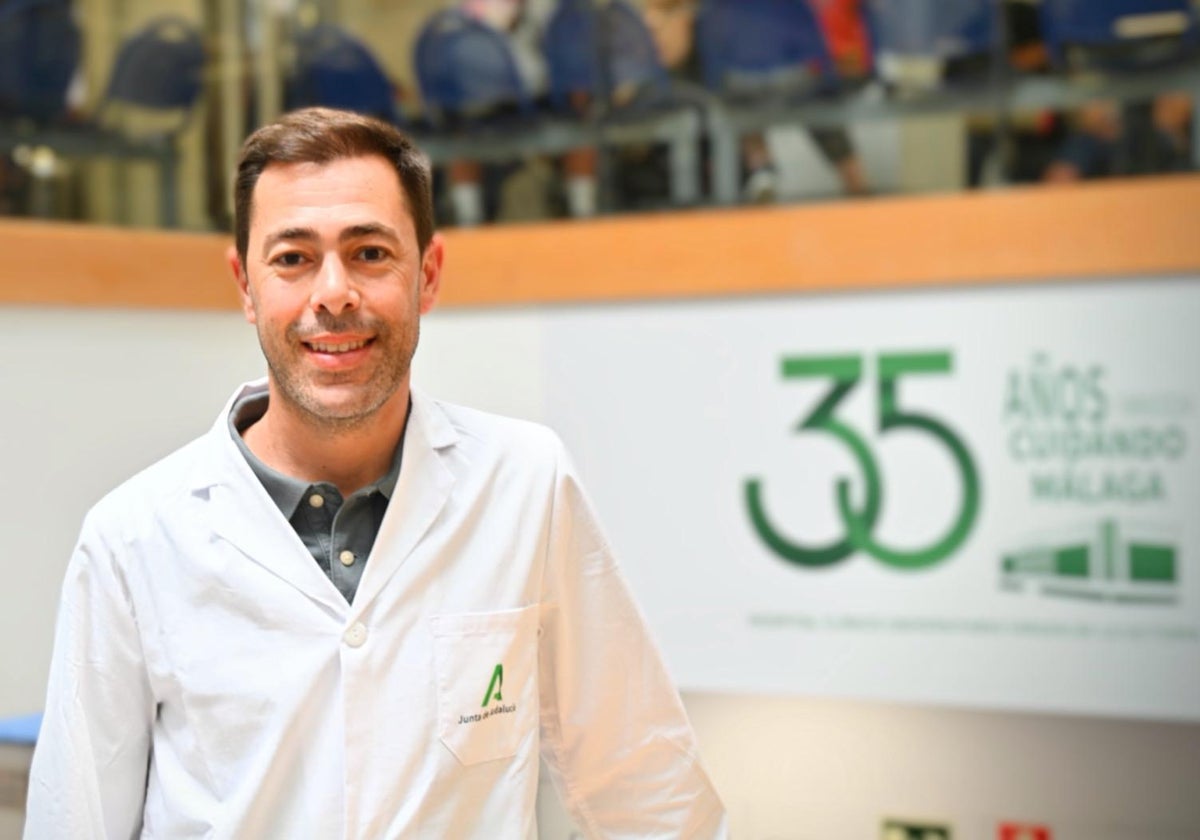Robotic surgery in Malaga minimises most feared consequences of prostate cancer: incontinence and erectile dysfunction
Cases of genetic origin, around 15% of the total, which have a higher mortality rate, may benefit from molecular diagnosis and treatment following pioneering research by two hospitals
Prostate cancer is the third most common cancer after colorectal and breast cancer, at least in Malaga province. There were 1,222 cases detected in 2024, 2.3% more than in 2023 and, according to Bernardo Herrera, head of the urology department at the Hospital Universitario Virgen de la Victoria, the trend will continue not only in the province but throughout Spain as well. "The diagnosis of certain tumours will be extremely high and one of them will be prostate cancer," says the expert. The incidence in the country is around 35,000 cases a year and it could reach more than 50,000 by 2040.
However, there are positive advances in diagnosis and treatment, such as robotic surgery, which minimises the most feared consequences of prostate cancer: erectile dysfunction and urinary incontinence.
Traditionally, 10 June is the International Prostate Cancer Day. On that day, Herrera, who is also an expert in robotic surgery of the prostate and principal investigator of the genitourinary oncology group of the Andalusian biomedical research institute (IBIMA-Bionand Platform), reviewed the advances that are being made against this pathology. "Robotic surgery has revolutionised the surgical treatment of prostate cancer, because it allows us to maintain the oncological outcomes and greatly reduce the associated complications, which are mainly incontinence and erectile dysfunction," he said.
He added that, in patients with incontinence, "response rates of 90% to 95% can be achieved, while up to 80% to 85% of patients can maintain erection. The risk has been greatly minimised".
According to Herrera, there are increasingly more precise diagnostic answers. More cases are detected effectively thanks to the corresponding PSA test (a blood test for prostate-specific antigen, which increases with this disease) and the process of magnetic resonance imaging.
This type of cancer is mostly related to age and lifestyle. People who suffer from obesity, metabolic syndromes, stress and a poor diet, as well as those over the age of 50 (1,066 of the 1,222 in 2024) are more predisposed. The other factor is of genetic origin, which occurs in 10-15% of cases.
Prostate cancer does not have specific symptoms. "The symptoms that occur in the lower urinary tract of the male can be attributable to multiple diseases," said Dr Herrera. For this reason, it is essential that, from the age of 50 onwards, men have their prostate checked by their GP or urologist. If there is a family history, routine check-ups must be done from the age of 40 onwards.
Mortality, however, depends very much on the type of prostate cancer. "If we diagnose a patient with a localised disease, with low aggressiveness, survival is very high - more than 90%," said Dr Herrera. But if the patient is diagnosed late or he shows a specific alteration or mutation in the genes that "predisposes" him to a worse prognosis, survival is between three and five years. For this reason, early diagnosis is fundamental and, in the case of more advanced tumours, it is essential to have access to "a good typification of the characteristics of the tumour". Early diagnosis is one that, in a period of three or four months, concludes with a complete study of the patient (analyses, examination, MRI, biopsy), as the tumour grows very slowly in the prostate.
But there are more advances: the incorporation of what is known as SBRT into radiotherapy - "more targeted techniques that allow for higher doses in less time" - making treatments shorter and reducing the number of hospital visits for patients.
Key contribution of the Hospital del Valle del Guadalhorce in genetic cancer
At the recent American Society of Clinical Oncology (ASCO) congress, held in Chicago at the end of May, Dr Herrera presented a study carried out by the Hospital Valle del Guadalhorce and the 12 de Octubre in Madrid, in which approximately 600 prostate cancer patients with hormone-sensitive metastasis and molecular alterations or mutations in the BRC1 and BRC2 genes were analysed. These patients have "worse survival rates as the cancer progresses rapidly. We need to identify these patients because there is treatment available for them; if not, we cannot give them the treatment," said Dr Herrera.
To detect these conditions, a molecular study must be carried out in the laboratory, although this is not yet included "in all the laboratories, in all the hospitals" in Spain. Once this study has been carried out, patients must receive what are called "systemic drugs" or PARP inhibitors, which attack these alterations or molecular mutations. This type of prostate cancer was, until now, a death sentence, but there is a horizon of hope opening now.



Comentar es una ventaja exclusiva para registrados
¿Ya eres registrado?
Inicia sesiónNecesitas ser suscriptor para poder votar.